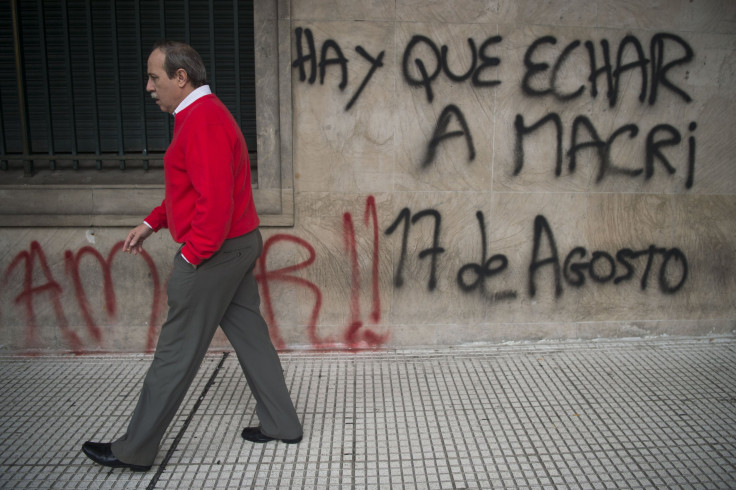Argentina Returns To The International Bond Markets Looking To Sell Up To $15 Billion Worth Of Debt

Buenos Aires returned to the global market for government bonds Monday as it began courting lenders to buy as much as $15 billion worth of debt.
The money could be used as soon as this week to settle a long-standing dispute with U.S. hedge funds led by Elliott Management, which was founded by activist investor Paul Singer, and Aurelius Capital, which is headed by Mark Brodsky, a former Elliott Management attorney.
These and other lenders have been the holdouts unwilling to take losses on their investments after Argentina defaulted on its debts in 2001 amid a four-year economic depression.
Argentina has set an initial target of 8 percent for its benchmark 10-year bond, although the final figure for that security and the country's three-, five- and 30-year bonds will ultimately be determined by demand. Initial interest in the bonds was strong Monday, topping $40 billion, according to unidentified sources who spoke to the International Financing Review. The rates will be confirmed Tuesday.
A recent Financial Times poll of sovereign debt investors indicated an 8 percent yield on the debt would be considered “fair” for a country that has defaulted on its debts numerous times.
The move comes just four months after Argentine voters elected new President Mauricio Macri, a pro-business conservative who has promised to turn around the country’s fortunes. The nation faces tepid economic growth, double-digit inflation and a ballooning deficit.
One of Macri’s first acts was to remove the capital controls put in place by his predecessor as president, Cristina Fernández de Kirchner, leading to a 30 percent devaluation of the Argentine peso. Macri also cut utility subsidies and has been on a worldwide tour to court investors: In January, he became the first Argentine leader in more than a decade to attend the World Economic Forum annual meeting in Davos, Switzerland.
Hedge fund players such as Elliott Management and Aurelius Capital are frequently derisively called vulture funds in Latin America because of their propensity to first buy distressed debt at a loss for other lenders and then turn to the U.S. courts to compel governments to pay up what’s owed on the securities.
© Copyright IBTimes 2024. All rights reserved.






















